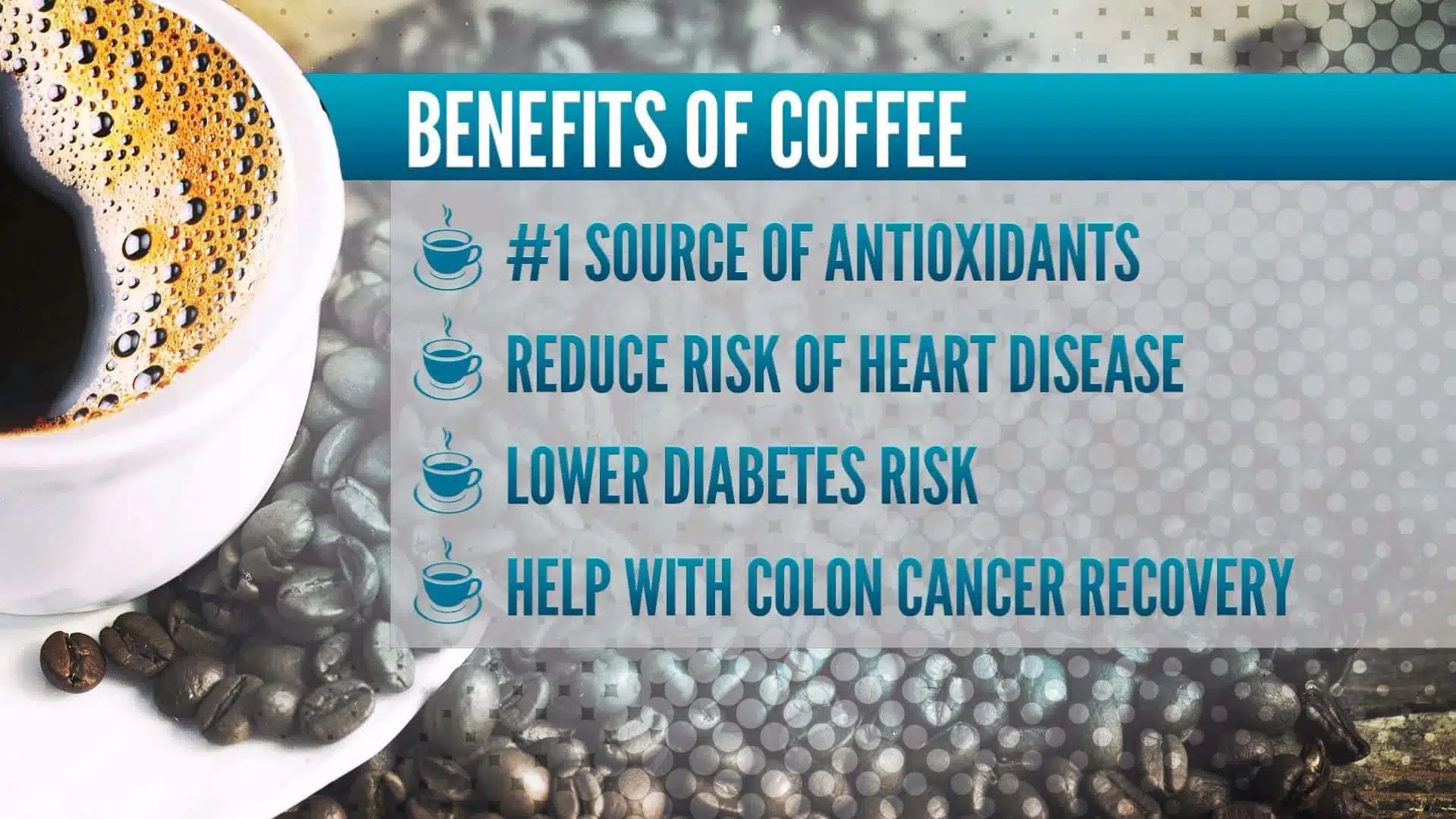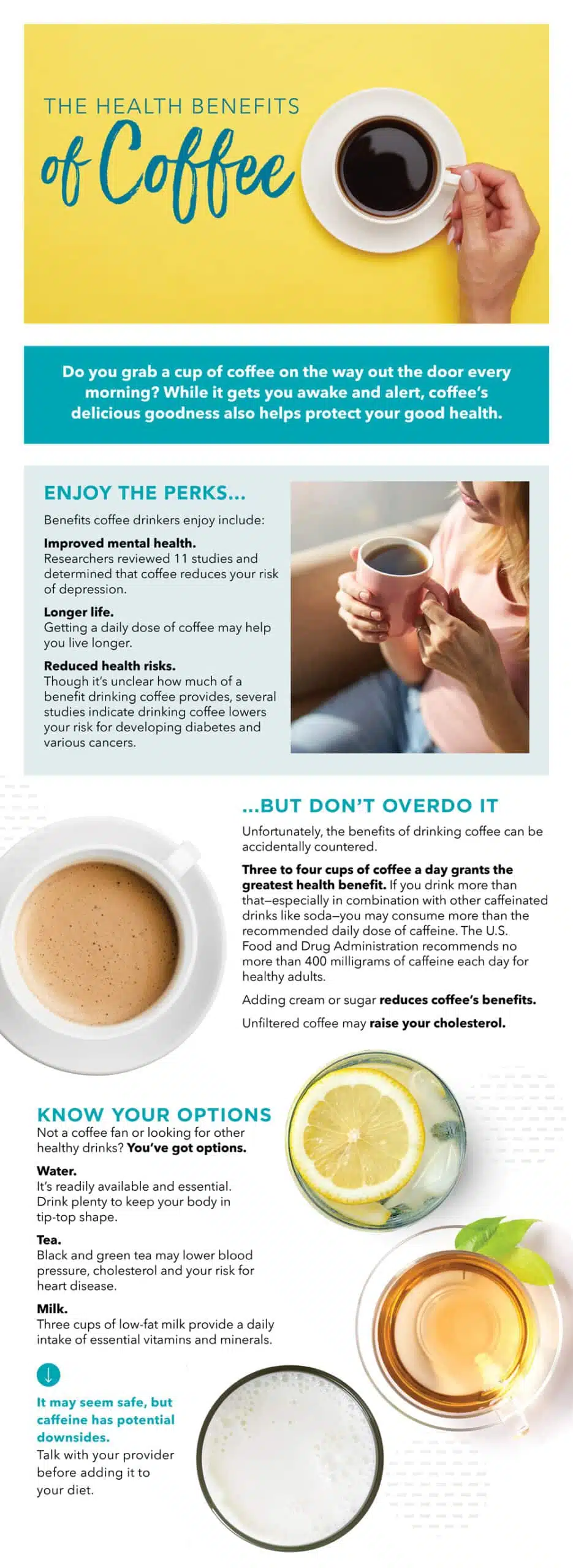Coffee has become a beloved staple for millions around the globe, renowned for its delightful flavor and energizing properties. Beyond its rich aroma and taste, many people marvel at the health benefits of consuming coffee, which can enhance mental alertness and physical performance. However, it’s essential to navigate the balance between enjoyment and moderation, as excessive intake can lead to various drawbacks. Understanding both the positive and negative aspects empowers coffee lovers to make informed choices, ensuring that their favorite beverage contributes to a vibrant, healthy lifestyle.
Introduction to Coffee and Its Popularity
Coffee has become a beloved beverage worldwide, bringing together millions of people with each aromatic cup. Its rich history and cultural significance make it more than just a drink; it represents a delightful ritual enjoyed in various forms around the globe.
Some key reasons behind the immense popularity of coffee include:
- Flavor Variety: From robust espresso to smooth cold brews, coffee offers diverse flavors catering to every palate.
- Social Connection: Coffee shops buzz with life, serving as meeting spots for friends and colleagues, enhancing social interactions.
- Boost of Energy: Coffee’s stimulating effects, primarily due to caffeine, provide an instant energy boost, making it an ideal choice for early mornings or post-lunch slumps.
Moreover, research highlights numerous health benefits associated with moderate coffee consumption:
- Improved Mental Alertness: Caffeine enhances cognitive function, aiding concentration and productivity.
- Physical Performance Enhancement: Athletes often utilize coffee for improved endurance during workouts.
While enjoying coffee, it’s essential to savor its unique flavors and appreciate the potential health benefits that come with it. By understanding the reasons behind coffee’s popularity, we can better appreciate our daily cup and make informed choices that align with our health goals.

Understanding Caffeine: The Key Component
Caffeine, a natural stimulant found primarily in coffee, plays a vital role in the beverage’s popularity. Understanding caffeine can help you appreciate the numerous health benefits that come with consuming coffee.
Here’s what you need to know about caffeine:
- Source of Energy: Caffeine increases adrenaline levels, enabling your body to convert fat into energy, which can enhance your physical performance.
- Central Nervous System Stimulant: By blocking the neurotransmitter adenosine, caffeine boosts dopamine production, leading to improved mood and increased mental alertness.
- Cognitive Performance: Many studies suggest that caffeine consumption can improve focus, attention, and reaction times, leading to better performance in both work and daily tasks.
- Antioxidant Properties: Coffee is rich in antioxidants, offering protection against oxidative stress. The caffeine combined with these antioxidants significantly contributes to the health benefits of coffee.
In a comparative analysis, let’s look at common caffeine sources:
| Source | Caffeine Content (per 8 oz) | Health Benefits |
|---|---|---|
| Coffee | 95 mg | Enhanced alertness, antioxidants |
| Tea | 30-50 mg | Calming effects, hydration |
| Energy Drinks | 80-150 mg | Quick energy boost |
Embracing caffeine mindfully can maximize the health benefits while minimizing any potential downsides. Thus, understanding caffeine empowers you to enjoy coffee as part of a balanced lifestyle.
Health Benefits of Drinking Coffee
Drinking coffee comes with an impressive array of health benefits that can enhance your daily life. Here are some key advantages to consider:
- Rich in Antioxidants: Coffee is one of the primary sources of antioxidants in the modern diet. These compounds help neutralize free radicals, potentially reducing the risk of chronic diseases.
- Boosts Physical Performance: Caffeine, a key ingredient in coffee, enhances physical performance. A quick cup before your workout can increase stamina and improve endurance.
- Enhances Mental Alertness: Research shows that coffee consumption can significantly improve focus and concentration. Caffeine blocks adenosine, a neurotransmitter that promotes relaxation, thereby keeping you alert.
- May Lower Disease Risks: Studies suggest that regular coffee drinkers may have a lower risk of developing certain diseases, such as Parkinson’s and type 2 diabetes.
- Mood Booster: Enjoying coffee can also elevate your mood. The caffeine in coffee stimulates the central nervous system, leading to increased serotonin levels, which may contribute to lower rates of depression.
In summary, the health benefits of drinking coffee extend beyond just a pleasant morning ritual. By enjoying coffee mindfully, you can harness its advantages while savoring the rich flavors it brings to your day.
Coffee and Mental Alertness
Coffee is renowned for its invigorating effects, primarily due to caffeine, which significantly enhances mental alertness. Many people consume coffee, especially in the morning, to kick-start their day and improve cognitive function.
Here’s how coffee contributes to mental alertness:
- Increased Concentration: Caffeine blocks adenosine, a neurotransmitter that promotes sleepiness, thereby keeping you awake and focused. This leads to heightened attention and improved concentration during tasks.
- Enhanced Memory: Studies suggest that caffeine can bolster both short-term and long-term memory. Consequently, engaging in critical activities after a cup of coffee may lead to better retention of information.
- Mood Boost: The intake of coffee also elevates dopamine levels, contributing to an overall improved mood. A positive mood can further drive your motivation and productivity levels.
To illustrate the stark contrast in cognitive performance with and without caffeine, consider the following comparison:
| Aspect | Without Coffee | With Coffee |
|---|---|---|
| Focus | Moderate | High |
| Ability to Solve Problems | Low | High |
| Response Time | Slower | Faster |
In summary, the health benefits of coffee in terms of mental alertness are remarkable. Embracing it mindfully can lead to smoother, more productive days, making coffee a fantastic ally in achieving peak cognitive performance.

Impact of Coffee on Physical Performance
Coffee not only energizes your mornings but also enhances your physical performance, making it a favorite among athletes and fitness enthusiasts. The health benefits of coffee, particularly regarding physical activity, stem primarily from its caffeine content.
Key impacts of coffee on physical performance include:
- Increased Endurance: Caffeine helps to mobilize fatty acids from the fat tissues, providing an energy source that enhances endurance and stamina during prolonged exercise.
- Enhanced Strength and Power: Consumption of coffee can improve strength outcomes by increasing adrenaline levels. This hormone prepares your body for intense physical exertion.
- Improved Focus: Caffeine boosts alertness and concentration, allowing you to stay mentally sharp during workouts. This can lead to better form and technique, ultimately enhancing performance.
- Reduced Perceived Effort: Studies show that caffeine can reduce the perceived exertion during strenuous activities, making it feel easier to push through exhaustion.
Comparison of Benefits:
| Aspect | Without Coffee | With Coffee |
|---|---|---|
| Endurance | Moderate | High |
| Strength and Power | Standard | Enhanced |
| Mental Focus | Average | Sharper |
| Perceived Exertion | Higher | Lower |
Incorporating coffee into your pre-workout routine can deliver significant health benefits, ultimately helping you reach your fitness goals and feel more energized throughout the day. Enjoying coffee as part of a balanced diet can truly enhance your performance and motivation!
Antioxidants and Nutrients in Coffee
Coffee is not just a delightful beverage; it is also a powerhouse of antioxidants and essential nutrients that contribute to its numerous health benefits. Before you reach for that morning cup, let’s explore what makes coffee a nutritional marvel.
- Antioxidants: Coffee boasts a wealth of antioxidants, such as chlorogenic acid and caffeic acid, which play a vital role in neutralizing free radicals that cause cellular damage. Studies reveal that coffee is one of the largest sources of antioxidants in the Western diet.
- Vitamins and Minerals:
- B Vitamins: Coffee contains several B vitamins, including niacin (B3) and riboflavin (B2), which are essential for energy metabolism.
- Potassium: This vital mineral aids in regulating blood pressure and supporting heart health.
Comparison Table of Antioxidants in Coffee vs. Other Beverages
| Beverage | Antioxidant Level (mg per cup) |
|---|---|
| Coffee | 300-500 |
| Green Tea | 100-200 |
| Red Wine | 150-200 |
| Orange Juice | 50-100 |
With such an impressive array of antioxidants and nutrients, coffee not only invigorates, but it also contributes to your overall well-being. However, while enjoying these health benefits, moderation remains key to maintaining a balanced approach to coffee consumption.
Potential Harms of Excessive Coffee Consumption
While coffee offers numerous health benefits, it’s essential to recognize that moderation is key. Overindulging in coffee can lead to several potential harms that may outweigh its positive attributes. Here are some common issues associated with excessive consumption:
- Increased Anxiety and Jitters: High caffeine intake may elevate feelings of anxiety, restlessness, and lead to jitters, making it challenging to focus or relax.
- Insomnia: Drinking coffee, especially later in the day, can disrupt sleep patterns, contributing to insomnia and fatigue during the day.
- Digestive Issues: Heavy coffee consumption can lead to stomach upset, acid reflux, or indigestion due to its acidic nature.
- Higher Heart Rate: For some, excess caffeine can trigger tachycardia (increased heart rate), potentially causing heart palpitations or discomfort.
- Dependency and Withdrawal: Regularly consuming large amounts can lead to caffeine dependency. Withdrawal symptoms may include headaches, fatigue, and irritability.
| Effects | Moderate Consumption | Excessive Consumption |
|---|---|---|
| Anxiety | Low | High |
| Insomnia | Rare | Common |
| Digestive Issues | Minimal | Significant |
| Heart Rate | Normal | Increased |
| Withdrawal | Uncommon | Common |
Recognizing these potential harms is crucial for balancing coffee intake while still enjoying its numerous health benefits. By paying attention to your body’s signals, you can find a happy medium that promotes well-being.

Balancing Coffee Intake for Optimal Health
Finding the right balance in coffee consumption can amplify its health benefits while minimizing potential downsides. Here are some effective strategies to ensure you enjoy coffee mindfully:
- Moderation is Key: Aim for 3 to 4 cups of coffee daily. This amount generally maximizes health benefits without overwhelming your system.
- Listen to Your Body: Pay attention to how coffee makes you feel. If you experience jitters, anxiety, or sleep disturbances, consider reducing your intake.
- Optimal Timing: Enjoy coffee during the mid-morning or early afternoon to avoid interference with sleep. Caffeine can remain in your system for hours, so timing matters.
- Hydration: Balance coffee consumption with water intake. Staying hydrated can mitigate any dehydrating effects of caffeine, allowing you to enjoy the health benefits without discomfort.
- Quality Over Quantity: Choose high-quality, organic coffee to ensure you reap maximum nutrients and antioxidants while reducing exposure to pesticides.
Remember, the health benefits of coffee vary by individual. Therefore, tailor your consumption to suit your lifestyle, preferences, and health status. Embrace your love for coffee while remaining mindful of how it impacts your overall well-being. By maintaining a balanced approach, you can savor the delights of coffee and enjoy its numerous advantages in a healthy lifestyle.
The Role of Coffee in Social Interactions
Coffee serves not only as a beloved beverage but also as a catalyst for social interactions. The health benefits of enjoying coffee together extend beyond its invigorating properties and reach into the realm of interpersonal connections. Here are a few ways in which coffee fosters community and enhances relationships:
- Shared Experiences: Meeting over coffee creates a bonding experience, allowing people to engage in meaningful conversations. This simple act cultivates friendships and strengthens existing relationships.
- Culturally Enriching: Many cultures have rituals centered around coffee. Participating in these traditions can deepen understanding and appreciation of diverse backgrounds, thus boosting social cohesion.
- Networking Opportunities: Coffee breaks in professional settings provide a relaxed atmosphere for networking. Important connections often form over a shared cup, opening doors for collaboration and new ventures.
- Mental Well-being: Engaging in social conversations while sipping coffee can improve mood and decrease stress. Positive social interactions contribute significantly to mental wellness, enhancing the health benefits of coffee consumption.
Embracing coffee as a social beverage brings people together, making it a delightful and beneficial addition to any gathering. Remember, sipping coffee in good company not only satisfies our taste buds but also nurtures our social health!
Tips for Enjoying Coffee Mindfully
Drinking coffee can certainly provide a delightful experience along with its many health benefits. To enhance your enjoyment and maintain a healthy relationship with coffee, consider the following tips for mindful consumption:
- Savor the Flavor: Take a moment to appreciate the aroma and taste of your coffee. Slow down, sip, and engage your senses. This enjoyment can enhance your overall experience.
- Opt for Quality Over Quantity: Choose high-quality coffee beans and brew methods. Higher quality often means a richer flavor, reducing the need for added sugars or creams.
- Stay Hydrated: Coffee has a diuretic effect; hence, complement each cup with a glass of water. Hydration is crucial and helps realize the health benefits of coffee without the risk of dehydration.
- Limit Added Ingredients: Reducing sugar, cream, or flavored syrups not only makes your coffee healthier but also allows the natural flavors to shine through.
- Monitor Your Intake: Aim for 3-4 cups a day to enjoy the health benefits while avoiding possible side effects. Keeping track helps you prevent excessive consumption.
- Time Your Coffee: Enjoy your coffee in the morning or early afternoon to maximize alertness without disrupting sleep patterns.
By incorporating these mindful tips, you can embrace coffee’s rich tradition and numerous health benefits while promoting your overall well-being. Enjoy every sip!

Conclusion: Embracing Coffee in a Healthy Lifestyle
In conclusion, coffee can be a delightful addition to a healthy lifestyle when consumed mindfully. The many health benefits of coffee—such as improved mental alertness, enhanced physical performance, and a rich source of antioxidants—make it a popular beverage choice.
However, moderation is key. To truly enjoy its health benefits, consider the following points:
- Mindful Consumption: Pay attention to how your body reacts to coffee. This helps you gauge your optimal intake.
- Quality Matters: Choose high-quality beans, as they tend to have more health-boosting nutrients.
- Social Enjoyment: Share a cup with friends or family to enhance your coffee experience and foster connections.
Ultimately, coffee can fit seamlessly into your daily routine, provided you keep your intake balanced. By embracing the health benefits coffee offers while remaining aware of its potential downsides, you can enjoy a fulfilling and health-conscious relationship with this beloved brew. So, raise your cup and celebrate the joys of coffee in a way that complements your health and lifestyle!
Frequently Asked Questions
What are the health benefits of consuming coffee in moderation?
Consuming coffee in moderation can offer a variety of health benefits. It is known to enhance cognitive functions, improving alertness and concentration due to its caffeine content. Additionally, studies suggest that moderate coffee consumption may lower the risk of several diseases such as Parkinson’s and Alzheimer’s. Furthermore, coffee is packed with antioxidants, which help fight inflammation and protect against chronic diseases, thus contributing to overall health and wellness.
Can drinking coffee lead to negative health effects?
Yes, while coffee has its benefits, excessive consumption can lead to negative health effects. Drinking high amounts of coffee can result in increased heart rate, anxiety, and insomnia. Additionally, it may contribute to digestive issues or exacerbate conditions like acid reflux. It’s vital for coffee drinkers to listen to their bodies and adjust their intake accordingly to avoid these potential downsides and ensure they are enjoying coffee in a healthy way.
How much coffee is considered safe to drink daily?
Most health experts agree that moderate coffee consumption, typically defined as 3 to 4 cups per day containing about 300 to 400 mg of caffeine, is safe for most adults. This amount can still provide health benefits while minimizing risks. However, individual tolerances to caffeine can vary widely, so it’s essential to pay attention to how your body reacts and consult with a healthcare provider for personalized recommendations.
Does coffee consumption affect hydration levels?
A common misconception is that coffee dehydrates the body. However, recent studies indicate that moderate coffee consumption does not significantly impact hydration levels. While caffeine can have a mild diuretic effect, the overall fluid intake from coffee contributes to hydration. As long as you maintain a balanced diet and drink water throughout the day, enjoying coffee can be part of a well-hydrated lifestyle.
Is decaffeinated coffee a healthier option than regular coffee?
Decaffeinated coffee can be a great choice for those looking to reduce caffeine intake while still enjoying the great flavors and potential health benefits of coffee. It contains many of the same antioxidants found in regular coffee, which can still provide health-promoting properties. However, it’s essential to be mindful of added sugars or creamers that may increase calorie content. Ultimately, the choice between decaf and regular coffee depends on individual health needs and preferences.

